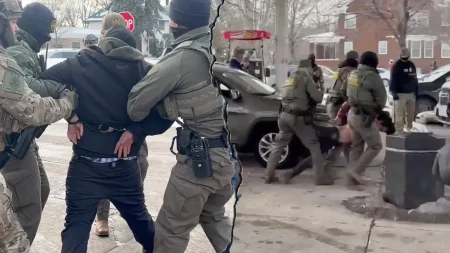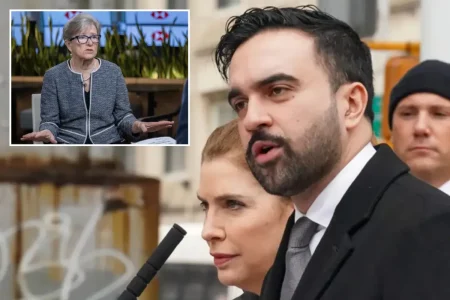The Harjinder Singh Case: A Tragedy Sparking Massive Public Response
A petition calling for clemency in the case of Harjinder Singh has captured national attention, amassing nearly 2.5 million signatures. The 28-year-old truck driver, who entered the United States illegally in 2018, faces serious charges following a devastating accident on the Florida Turnpike that claimed three lives. As the legal proceedings unfold, this case has become a flashpoint in the ongoing national conversation about immigration, justice, and proportional punishment.
On August 12, Singh was operating a commercial semi-truck with a trailer in Fort Pierce when he allegedly attempted an unauthorized U-turn. The maneuver caused his trailer to jackknife and collide with a minivan, resulting in the deaths of all three occupants. Following the accident, authorities claim Singh and his passenger, Harneet Singh, fled to Sacramento before Singh was ultimately arrested in Stockton, California on August 16. He was later extradited to Florida to face charges of vehicular homicide and manslaughter. The circumstances of his flight contributed to a Florida judge’s recent decision to deny him bond, with Judge Lauren Sweet citing his unauthorized immigration status and deeming him a substantial flight risk. The judge found probable cause for all six charges against Singh and classified them as forcible felonies under Florida law.
The petition, addressed to Florida Governor Ron DeSantis and the Florida Board of Executive Clemency, presents a starkly different perspective on the incident. Signed by “Collective Punjabi youth,” it characterizes the crash as “a tragic accident—not a deliberate act” and argues that “the severity of the charges against him does not align with the circumstances of the incident.” The petition doesn’t seek Singh’s exoneration but rather requests what it terms a “proportionate and reasonable” sentence if he’s convicted. It also advocates for parole eligibility after he serves part of his sentence and suggests alternatives to incarceration such as counseling or community service. This groundswell of support highlights how the case has resonated particularly strongly within the Punjabi community, while also touching on broader questions about justice and mercy in the American legal system.
Singh’s background has become central to the public discourse surrounding the case. According to Tricia McLaughlin, Homeland Security Assistant Secretary for Public Affairs, Singh crossed into the U.S. illegally via the southern border in 2018. He subsequently obtained a commercial driver’s license in California and attempted to secure work authorization, which was rejected by the Trump administration in September 2020. This aspect of Singh’s story has prompted policy responses at the federal level. Secretary of State Marco Rubio announced this week that the U.S. is halting work visas for foreign commercial truck drivers—a move that has received praise from conservatives in the aftermath of the tragedy. The intersection of immigration policy and public safety evident in this case reflects the complex, often polarizing nature of these issues in American society.
The legal proceedings against Singh are occurring against the backdrop of intensified rhetoric and action regarding immigration enforcement. Governor DeSantis, to whom the petition is addressed, has been a vocal proponent of strict immigration policies. While he has not yet responded to requests for comment on the petition, his administration has previously emphasized aggressive enforcement measures against undocumented immigrants accused of crimes. This stance was exemplified in the pursuit of Singh, with DeSantis declaring that “state lines won’t protect criminal illegals” as Florida authorities worked to apprehend him in California. The governor’s involvement brings additional political dimensions to a case already laden with emotional, ethical, and policy considerations.
As this case continues to unfold, it illustrates the profound human impact of immigration policies, traffic safety regulations, and criminal justice procedures. For the families of the three victims, no petition or policy change can restore what they’ve lost. For Singh, who now faces the possibility of decades in prison, the consequences of that August day are equally life-altering. And for the millions who have signed the petition, this case represents something larger than one man or one accident—it speaks to questions of proportionality in punishment, the role of intent in determining culpability, and the complex intersections of justice and mercy. Whether viewed through the lens of immigration policy, criminal justice reform, or simple human compassion, the Harjinder Singh case has become a powerful reminder of how individual tragedies can illuminate broader societal tensions and challenges.












